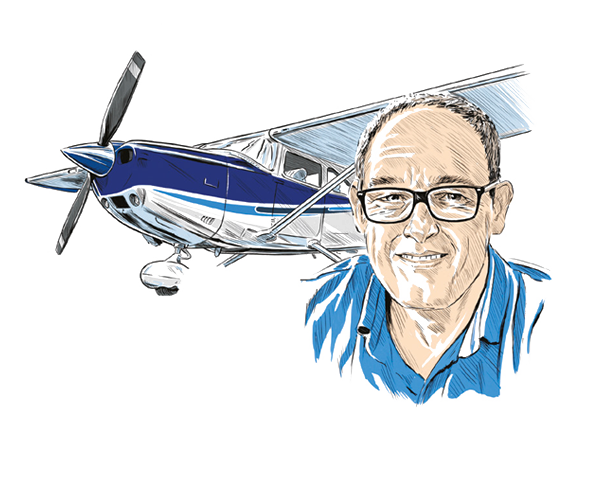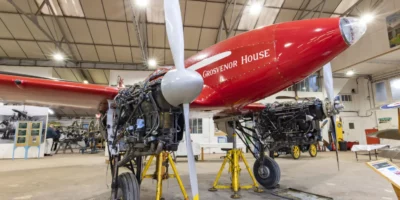Ihave just been to the European Regions Airline Association’s summit. It’s clearly not a General Aviation event, but I was surprised that many of its challenges are similar and sometimes identical to ours. Ageing fleets and the high capital cost of replacement, equitable access to airports, the ever growing regulatory burden, and of course Brexit, but right at the top of their list of concerns is sustainability.
Regional airlines are well aware that their passengers’ environmental concerns could significantly reduce ticket sales, and they’re working hard to decarbonise aviation through the use of more efficient aircraft and engines (both Airbus and Embraer gave presentations on existing and potential upcoming aircraft), more efficient use of airspace (direct routing is good for everyone), filling more seats (nobody wants to fly empty seats around) and the use of sustainable aviation fuel (SAF).
I’d go as far as to say that SAF is seen by many in the regional airline business as the most significant thing they can do in the short term. There are plenty of people talking about electric, hydrogen and hybrid solutions, but I’m not sure if anyone believes that’s going to be with us anytime real soon, and in the meantime everyone’s doing whatever they can, with the optimum solutions showing something like a 25% improvement in fuel economy.
And then there’s General Aviation, where I suggest reality and perception are many (nautical miles) apart. For us, the ageing fleet is an environmental plus that is hardly ever discussed (most of us buy new or nearly new cars far more frequently than we do aircraft), and when compared to some other leisure activities such as boating or motorhomes, General Aviation is a tiny user of fossil fuels, with GA airfields being significantly better for the environment than golf course, industrial estates or houses.
We are probably a bit noisier than many hobbies, but that’s generally a transient impact, and one that the growth of Rotax-powered aircraft is reducing significantly. Sadly, none of that changes the fact that those not directly involved with aviation inevitably see us in the same light as the heaviest commercial jets.
Although not directly related to sustainability from a carbon point of view, there is a bit of an elephant in the GA hangar, and that’s tetraethyl lead (TEL). Its use in automotive fuel declined significantly from the mid 1970s and it was banned completely in 2000, but it remains an essential element in 100LL avgas.
There may be no compelling evidence that the (relatively) tiny amounts of 100LL consumed, even on a global scale are causing any damage, but if you’ll forgive the pun, lead’s brand has been toxic for a long time and I can’t see that changing. TEL is essential for many/most of the big bore air cooled aviation engines, which happen to be those that use more 100LL than anyone else, so any fast and badly thought out regulatory action is going to be a serious problem for many of us.
A lot of work has been done on avgas blends that are both free of TEL and suitable for running in pretty much all of the engines that currently require 100LL for their health. There had been some kind of inexplicable regulatory road block but that’s recently been bulldozed, and now there’s just the small matter of sorting out mass production, commercialisation and distribution, and we can all burn lead free avgas. There’s a better chance than ever that it will happen, but I doubt it’ll happen quickly.
Even though General Aviation is a microscopic blip when it comes to the environment, and even though our biggest issue is currently being resolved, as part of the world’s aviation ecosystem we’re seen as an equal part of the problem. In reality piston-powered General Aviation is pretty virtuous when compared to most things both outside and inside of aviation, but there’s little point in bashing your head against that particular wall. Better still, I suggest, is to do something positive.
We should definitely educate when talking to people who are willing to learn, but we should also do what we can to mitigate what little effect we are having. That might mean flying more efficiently (leaning, done right also saves money), using unleaded fuel if it is suitable for our engines and available at the airfield pumps, and by carbon offsetting too, there are a number of schemes particularly aimed at GA flying.
Enjoy your flying with a clean conscience, but do something positive when and if you can.







